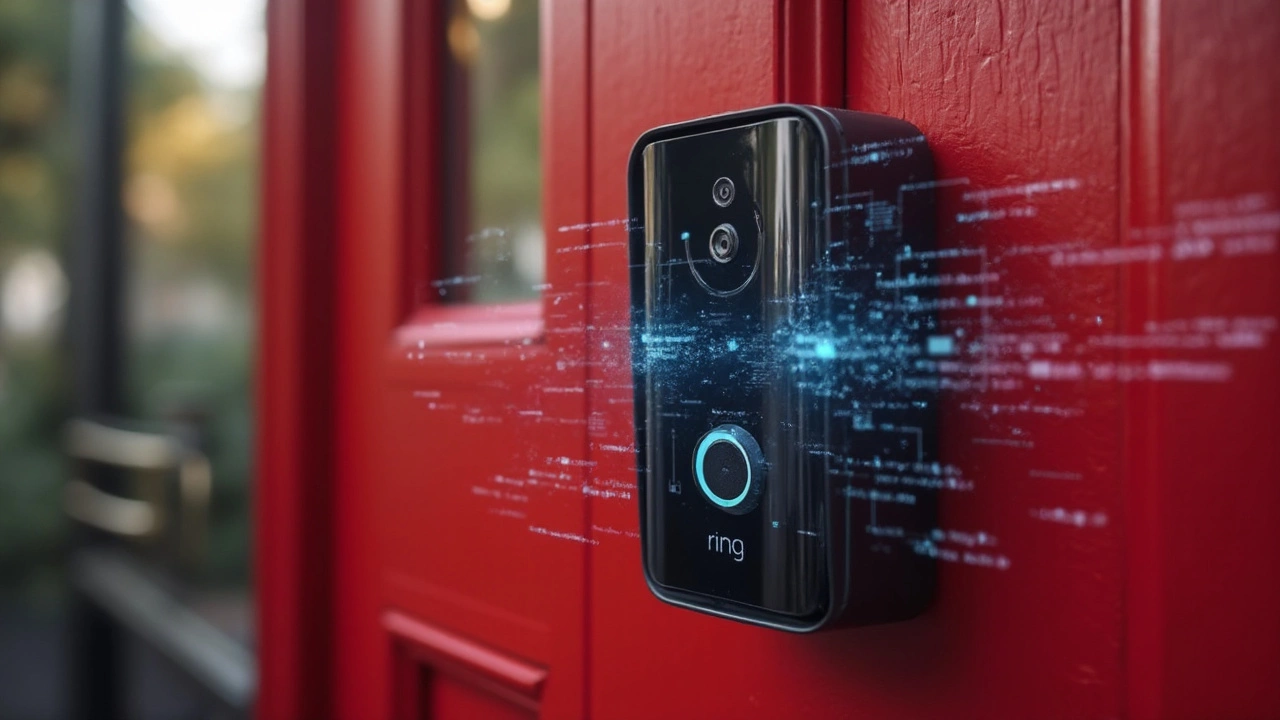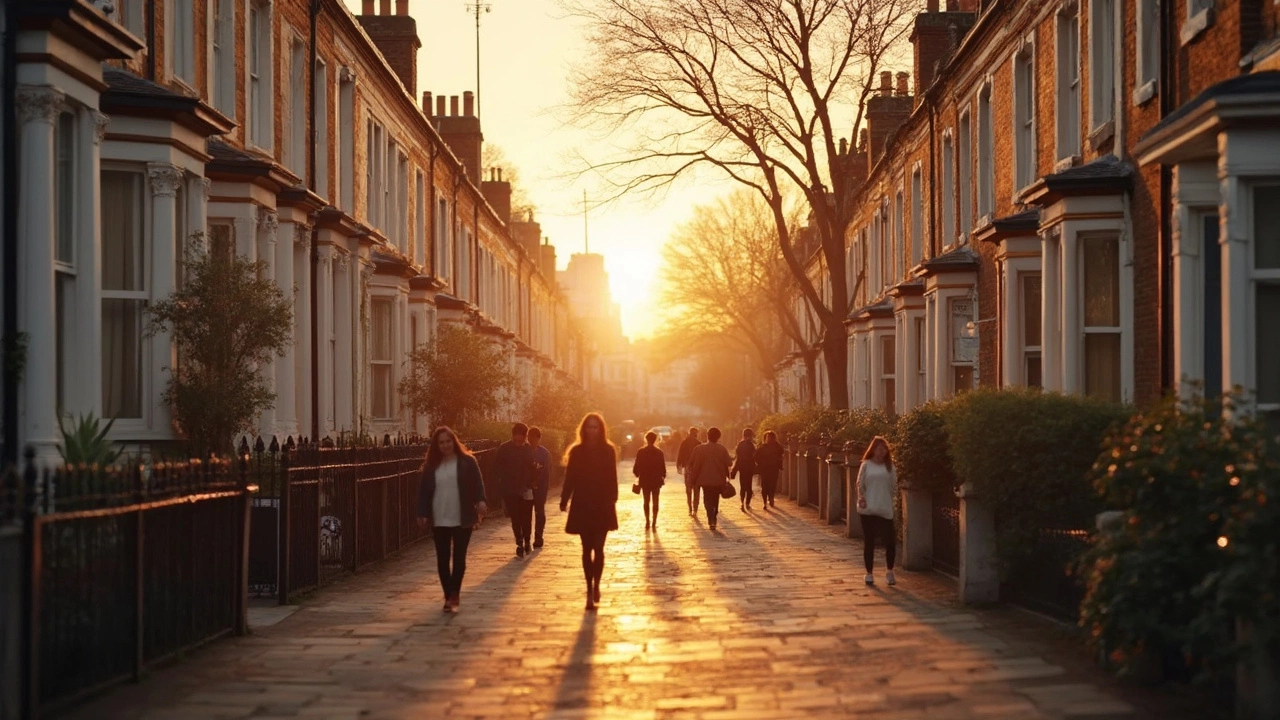Ring doorbells have become all the rage in home security, thanks to their nifty features. But if you're in the UK, there's more to think about than just catching delivery drop-offs on camera. Yeah, we're talking about the law.
You might wonder, "Can I just plop this thing on my front door and hit record?" Well, not exactly. UK law has its say, especially when it comes to who and what you're recording. Dive into the legal side of things, and you'll quickly realize it's more than just seeing who's at the door.
- Introduction to Ring Doorbells
- Legal Framework in the UK
- Privacy Concerns and Responsibilities
- Recording in Public Spaces
- Tips for Legal Compliance
- Conclusion
Introduction to Ring Doorbells
So, you've seen those cool doorbell cameras people are talking about, right? The Ring doorbell is like the rockstar of home security gadgets. It’s wired or wireless, streams live video to your phone, and lets you chat with anyone at your doorstep without even getting up from your couch. It’s an upgrade from the old peephole, that's for sure!
Now, why are people all over the UK investing in these things? Simple: home security and convenience. You can catch porch pirates in the act or just make sure your package arrived safely. And let's be honest, it feels kind of futuristic to see who's knocking when you're not even home.
Here’s a fun fact: As of 2023, UK households have increasingly adopted these smart doorbells, with nearly 30% owning either a Ring or similar device. It’s not just about stopping theft; it's about staying connected to your crib, even when you're miles away.
Whether you plug it in or go with a battery model, set up is usually a breeze, and the app helps you handle everything. They come with nifty features like motion detection, night vision, and even the ability to integrate with other smart home gear. The future really is just a ‘ding dong’ away.
Legal Framework in the UK
Installing a ring doorbell in the UK isn't just about finding the perfect spot near your front door. You also need to wrap your head around some legal stuff to make sure you're not accidentally turning into Big Brother. The primary piece of legislation you need to know is the Data Protection Act 2018, which is the UK's way of keeping your data and the data of others safe.
Smart doorbells fall under this act, especially when they record areas beyond your own property, like public sidewalks or your neighbor's garden. Why? Because as soon as you're collecting and possibly storing personal data of people outside your household, you're stepping into the realm of data controllers. And that means responsibilities.
Here's the lowdown on what you should be doing:
- Be Transparent: Let people know they're being recorded. It's not about turning your home into a spy HQ. A simple sign can do the trick.
- Minimize Coverage: Adjust your smart doorbell to cover just your property. If you can't avoid recording beyond this, ensure this is justified. Say, for added security - make it count.
- Don't Store Data Unnecessarily: Keep recordings only as long as they're needed for security reasons. The less data clutter, the better.
- Secure Your Data: Use strong passwords and encryption to keep those recordings safe from prying eyes.
Now, what happens if you skip these steps? You could find yourself on the wrong side of the UK's Information Commissioner's Office (ICO). They can give you a friendly nudge or, in serious cases, slap you with fines. So, it's worth the small effort for peace of mind.
Privacy Concerns and Responsibilities
When it comes to using ring doorbells in the UK, respecting privacy isn't just about being a good neighbor—it's a legal necessity. These gadgets can do more than just show you who's knocking; they can inadvertently capture video or sound beyond your front yard, bringing up privacy issues.
The UK surveillance laws have a bit to say here. The key thing to remember is that UK law allows you to film anything within your own property, but if your camera picks up anything outside those limits, like a public footpath or your neighbor's front door, the Data Protection Act 2018 might come into play. This means you've got responsibilities similar to those of a business handling personal data.
To stay on the right side of the law, consider these tips:
- Position your camera carefully to avoid covering areas not owned by you. This helps prevent accidentally filming your neighbor's property or any public spaces.
- Notify visitors that they are being recorded. A simple sign can do the trick and can help keep everything transparent.
- Securely store recordings and only keep them as long as necessary. It's wise to review your footage policy periodically to ensure compliance with the law.
- When possible, opt for a model with privacy masking features to block out areas beyond your property limits.
If disputes arise, it's best to have an open chat with neighbors. Sorting concerns amicably can prevent bigger problems down the line. Taking the extra steps to stay transparent and considerate ensures your home stays safe and legal worries are kept at bay.

Recording in Public Spaces
So, you've got your ring doorbell all set up, ready to catch that perfect angle. But what about those areas that stretch beyond your front porch? Recording anything in public spaces can be a tricky business, at least in the UK.
According to the Information Commissioner's Office (ICO), if your smart doorbell is capturing areas beyond your private property—like the street or your neighbor's yard—you’re stepping into the realm of data protection laws. This means you're handling personal data, and it’s up to folks like you to ensure it's done right. But don’t worry, it's not as daunting as it sounds.
Here’s a quick guide to keep things legal:
- Inform People: Got visitors? Make sure there’s a clear notice that informs them about the recording. A simple sign stating “CCTV in operation” can make a world of difference.
- Limit Recording: Adjust the camera to capture only what you need. It’s not just about sparing hard drive space, it’s about respecting privacy.
- Secure the Footage: Keep all recorded data safe and sound. Encrypt it if you can. Make sure only those authorized have access.
- Check Retention Times: Don't keep recordings longer than necessary. An occasional sweep to delete old data is a good habit.
Another essential tidbit from the ICO: if someone asks for footage featuring them (Sarah from next door or the mailman, perhaps), you generally have to comply. Such requests are considered personal data requests under UK law.
By taking these steps, your use of ring doorbells can be effective and legal without turning your neighborhood into a reality TV show. Keep it smart and respectful, and you’ll have no drama to worry about.
Tips for Legal Compliance
So, you've got your Ring Doorbell UK and you're set to amp up your home security. Exciting times! But hang on, before you get it rolling, you need to make sure you're not stepping on any legal toes. Let’s break it down so you can avoid those tricky legal conundrums.
First up, aim your camera wisely. It might be tempting to cover as much area as possible, but the golden rule is to ensure you're not spying on your neighbor's cat or anyone else without permission. Ideally, your camera should face your own property and cover just the doorstep and entry path.
Okay, next point is signs. Yes, signs. It's a smart move to put up a notice informing folks there’s a recording device in operation. This little heads-up can go a long way in keeping things clear and friendly with passersby.
Thinking about storing your video footage? Make sure you're not hoarding those clips for longer than needed. The UK data protection rules suggest keeping recordings for a short period and deleting them when they're no longer necessary.
Here's a nugget of advice: keep your software up to date for your smart doorbell. Regular updates ensure better security features and aid compliance by aligning with the latest privacy requirements.
- Angle your device: Focus on capturing only your property.
- Use signs: Inform visitors about surveillance.
- Store footage responsibly: Don’t save recordings longer than needed.
- Update regularly: Keep software up to date for privacy compliance.
And hey, it’s wise to have a go-to plan if someone requests access to footage they're in. Knowing how to handle these requests can keep you on the right side of the law and out of any sticky situations.
Conclusion
Alright, so you're now sorted with the basics of handling Ring doorbells in the UK. Understanding the legal nitty-gritty might've seemed a tad overwhelming at first, but it’s crucial for keeping both your home and neighborhood happy.
Installing your smart doorbell doesn’t just mean better security, but it also comes with duties. You’ve gotta think about where it's pointing and what it’s capturing. If it's watching a public space or even a neighbor's garden, make sure you’re playing by the rules.
Don’t forget to stay on the right side of the law by putting up a sign about recording, particularly if that camera can see beyond your front path. Keeping your footage secure and sharing it only when necessary is also key. That's the best way to keep things legal and neighborly.
Remember, the main goal here is to protect yourself without infringing on others’ privacy. And once you've got that balance right, you’ll be free to enjoy the peace of mind that your smart doorbell security brings.
So, go ahead, embrace that tech, but do it right. Your future self, and maybe even your neighbor, will thank you!

